Recent Blog Posts
The Surprising Benefits: Break a Tax Payment Plan through Chapter 7
 It is a common problem. You owed income taxes a year or two ago when you sent in your tax returns. Money was very tight so you could not just pay it off. You found out that the Internal Revenue Service lets you pay that unpaid tax through a monthly installment plan. So you set up the payment plan with the IRS. But your financial situation only got tighter because now you had a new monthly obligation you absolutely had to pay.
It is a common problem. You owed income taxes a year or two ago when you sent in your tax returns. Money was very tight so you could not just pay it off. You found out that the Internal Revenue Service lets you pay that unpaid tax through a monthly installment plan. So you set up the payment plan with the IRS. But your financial situation only got tighter because now you had a new monthly obligation you absolutely had to pay.
Now you are struggling to pay the monthly tax payment along with your living expenses and other debts. You wish there was a way to get out of your IRS monthly tax payment and other debts. The good news is that if a significant portion of your debt is an IRS monthly payment plan that you cannot afford, Chapter 7 bankruptcy may help. An experienced New Braunfels, TX bankruptcy attorney can provide guidance on using Chapter 7 bankruptcy to get out of an IRS payment plan you cannot afford.
Can a Debt Collector Garnish My Wages in Texas?
 It is a common myth that debt collectors can garnish a person’s wages when they have not repaid their debts. While this is true in many states across the country, it is mostly not true in Texas. Under Texas law, a person’s wages can be garnished only for very specific reasons, and consumer debt collection is not one of them. If you are in debt and fear that your wages may be garnished, read on to learn more about the law in Texas and contact a San Antonio, TX wage garnishment attorney.
It is a common myth that debt collectors can garnish a person’s wages when they have not repaid their debts. While this is true in many states across the country, it is mostly not true in Texas. Under Texas law, a person’s wages can be garnished only for very specific reasons, and consumer debt collection is not one of them. If you are in debt and fear that your wages may be garnished, read on to learn more about the law in Texas and contact a San Antonio, TX wage garnishment attorney.
What Is Wage Garnishment?
Wage garnishments, also sometimes referred to as wage attachments, are court orders that are sent to a borrower’s employer when they have not repaid their debt. Once the employer receives the order, the employer is then required to withhold a certain amount of money from the employee’s paycheck. The employer must then send the amount that was withheld to the creditor.
What Are Creditors Allowed to Do During Bankruptcy?
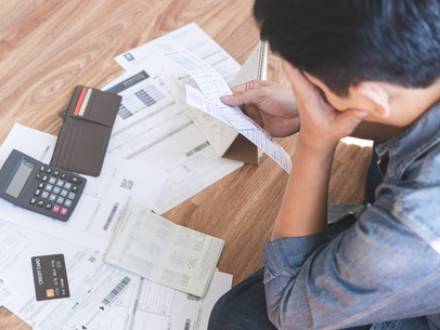 If you are struggling with debt, the calls, letters, and threats from creditors can feel endless. Many people delay filing for bankruptcy because they fear what creditors might do. However, filing for bankruptcy actually provides legal protection that stops most creditor harassment immediately.
If you are struggling with debt, the calls, letters, and threats from creditors can feel endless. Many people delay filing for bankruptcy because they fear what creditors might do. However, filing for bankruptcy actually provides legal protection that stops most creditor harassment immediately.
Bankruptcy is meant to give people a fresh financial start, but that does not mean creditors disappear overnight. They are still allowed to take certain actions, but there are strict rules about what they can and cannot do. Understanding these rules can help ease stress and prevent creditors from taking advantage of you, and our Texas bankruptcy lawyer is here to help.
Get Immediate Protection With an Automatic Stay
As soon as a bankruptcy case is filed, an automatic stay goes into effect under 11 U.S.C. § 362, halting most creditor actions. This legal order stops wage garnishments, lawsuits, collection calls, and other debt-related actions. Creditors must immediately stop contacting you about your debt. If they continue to call or send letters, they may be violating federal law, and you may have legal options to hold them accountable.
What Medical Bills Can You Get Rid of With Bankruptcy?
 Medical debt is one of the most common reasons people consider bankruptcy. Whether from an unexpected hospital stay, an emergency surgery, or long-term medical treatment, medical bills can quickly overwhelm even the most responsible people.
Medical debt is one of the most common reasons people consider bankruptcy. Whether from an unexpected hospital stay, an emergency surgery, or long-term medical treatment, medical bills can quickly overwhelm even the most responsible people.
If you are struggling with unpaid medical bills, you may be wondering: Does bankruptcy cover medical bills? Can you file bankruptcy on medical bills in Texas? The short answer is yes, bankruptcy can often help eliminate medical debt, but the process depends on your financial situation and the type of bankruptcy you qualify for.
Understanding how medical debt is treated in bankruptcy and what happens if you do not pay can help you make informed decisions about your financial future, and our Texas bankruptcy lawyer is here to help.
Can You File Bankruptcy for Medical Bills in Texas?
Medical debt is considered unsecured debt, meaning it is not backed by collateral like a house or car. In both Chapter 7 and Chapter 13 bankruptcy, medical bills can be discharged, meaning you are no longer legally required to pay them.
Can Tax Returns Be Garnished in Texas?
Receiving a tax refund can provide badly needed money, especially for those struggling with debt. However, during tax season, many people worry that creditors or the government will seize their refund before they ever see it. Texas has strong protections against wage and bank garnishments, but tax refunds are treated differently under both state and federal laws.
Understanding when and how a tax refund can be taken is important, not only for your peace of mind but so that you can devise a strategy to protect your money. A Texas bankruptcy lawyer can help you explore legal options to protect your income and work toward a fresh financial start.
Can Collectors Take My Tax Refund?
Texas law protects many types of income from garnishment by private creditors, including wages, Social Security benefits, and retirement income. However, tax refunds do not receive the same level of protection.
When Creditors Cannot Take Your Tax Refund
Most private creditors, such as credit card companies, medical debt collectors, and payday lenders, cannot directly seize your federal or state tax refund. Texas law generally prohibits wage garnishment for consumer debts, and there is no process that allows these creditors to intercept a tax refund before it reaches your bank account.
Can I Keep My Home After Bankruptcy?
 Your home is likely your most valuable asset in more ways than one. Losing your home can be a major financial and personal loss. If you are behind on mortgage payments and facing foreclosure, you are likely also struggling to keep up with any other debts you might have, such as credit card debts or medical bills. You might be considering bankruptcy as a solution but are worried about whether filing for bankruptcy would mean losing your house. In many cases, keeping your home after filing for bankruptcy is entirely possible. Filing Chapter 13 bankruptcy is a highly effective means of keeping your home when facing foreclosure. Even if you file Chapter 7 bankruptcy, there may still be options for keeping your home if that is a priority for you. A San Antonio, TX bankruptcy lawyer can help you strategize to avoid foreclosure during your bankruptcy.
Your home is likely your most valuable asset in more ways than one. Losing your home can be a major financial and personal loss. If you are behind on mortgage payments and facing foreclosure, you are likely also struggling to keep up with any other debts you might have, such as credit card debts or medical bills. You might be considering bankruptcy as a solution but are worried about whether filing for bankruptcy would mean losing your house. In many cases, keeping your home after filing for bankruptcy is entirely possible. Filing Chapter 13 bankruptcy is a highly effective means of keeping your home when facing foreclosure. Even if you file Chapter 7 bankruptcy, there may still be options for keeping your home if that is a priority for you. A San Antonio, TX bankruptcy lawyer can help you strategize to avoid foreclosure during your bankruptcy.
Using Chapter 13 Bankruptcy to Avoid Foreclosure
When you go through a Chapter 13 bankruptcy, you effectively consolidate your debts into one monthly payment. You keep making one large monthly payment for three to five years, and any unsatisfied debt is cleared. Since you are still making payments towards your debt, you can generally continue paying off your mortgage after the bankruptcy and avoid foreclosure.
Options for Avoiding Bankruptcy
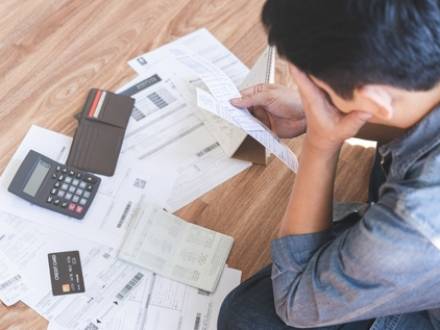 Filing for bankruptcy is a fairly drastic step. While it can offer you a fresh start without the burden of debt, it can also have a lasting impact on your credit score and may make achieving goals like homeownership more challenging. There are several alternatives to bankruptcy available for some debtors, especially those who only have one major creditor. You should explore these alternatives with an experienced New Braunfels, TX bankruptcy attorney before making the decision to file. Bankruptcy can be wonderful for those who truly need it, but it should not be your first resort if there is an alternative path to debt relief.
Filing for bankruptcy is a fairly drastic step. While it can offer you a fresh start without the burden of debt, it can also have a lasting impact on your credit score and may make achieving goals like homeownership more challenging. There are several alternatives to bankruptcy available for some debtors, especially those who only have one major creditor. You should explore these alternatives with an experienced New Braunfels, TX bankruptcy attorney before making the decision to file. Bankruptcy can be wonderful for those who truly need it, but it should not be your first resort if there is an alternative path to debt relief.
Negotiating With a Single Creditor
Most people who are struggling with debt owe numerous different debts to a series of creditors. For example, a person might have several credit cards that are all maxed out in addition to some medical debt and a mortgage in arrears. If you only have one major source of debt, you might be able to negotiate with that creditor to lower your monthly payments, waive late fees to help you catch up on payments, or reduce your interest rate so you can start paying down the principal.
The Impact of Chapter 13 Repayment Plans
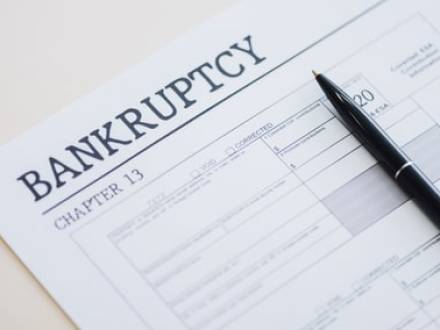 If you are considering filing for bankruptcy, you are likely already quite used to making large monthly payments toward your debts. You have probably been putting most of your disposable income toward credit card bills, payday loan debts, home equity loan debts, or other repayments. You may have been struggling to keep up with these payments for a long time. Restructuring your debts through Chapter 13 bankruptcy can help you establish a single monthly payment that is precisely calculated so that you can reliably make it, but will probably not have a lot of disposable income left over afterward. It is important to consider the impact this type of repayment plan will have on your lifestyle for the three to five years you will be on it before the remainder of your debt is cleared away. An experienced San Antonio, TX Chapter 13 bankruptcy lawyer can help you understand how restructuring your debts is likely to impact your life.
If you are considering filing for bankruptcy, you are likely already quite used to making large monthly payments toward your debts. You have probably been putting most of your disposable income toward credit card bills, payday loan debts, home equity loan debts, or other repayments. You may have been struggling to keep up with these payments for a long time. Restructuring your debts through Chapter 13 bankruptcy can help you establish a single monthly payment that is precisely calculated so that you can reliably make it, but will probably not have a lot of disposable income left over afterward. It is important to consider the impact this type of repayment plan will have on your lifestyle for the three to five years you will be on it before the remainder of your debt is cleared away. An experienced San Antonio, TX Chapter 13 bankruptcy lawyer can help you understand how restructuring your debts is likely to impact your life.
How Long Do I Have to Wait Before Filing for Bankruptcy Again?
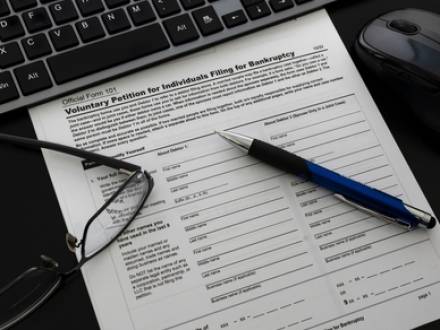 If at all possible, you should try to plan out your bankruptcy so that you will only need to file once. This means timing your bankruptcy strategically so that you will not go straight back into debt after filing. For example, if you are considering filing over the credit card debt you took on during a period of unemployment and you have not found a job yet, it may be better to wait until your financial situation has stabilized. After a successful bankruptcy, there is a waiting period before you can file again. The waiting period may be four, six, or eight years, depending on whether you filed under Chapter 7 or Chapter 13 last time and which chapter you will be filing under this time. People experiencing a second bankruptcy should be represented by an experienced Schertz, TX bankruptcy lawyer. Repeat filings can affect whether the automatic stay and other bankruptcy benefits help you.
If at all possible, you should try to plan out your bankruptcy so that you will only need to file once. This means timing your bankruptcy strategically so that you will not go straight back into debt after filing. For example, if you are considering filing over the credit card debt you took on during a period of unemployment and you have not found a job yet, it may be better to wait until your financial situation has stabilized. After a successful bankruptcy, there is a waiting period before you can file again. The waiting period may be four, six, or eight years, depending on whether you filed under Chapter 7 or Chapter 13 last time and which chapter you will be filing under this time. People experiencing a second bankruptcy should be represented by an experienced Schertz, TX bankruptcy lawyer. Repeat filings can affect whether the automatic stay and other bankruptcy benefits help you.
Can Filing for Bankruptcy Affect My Career?
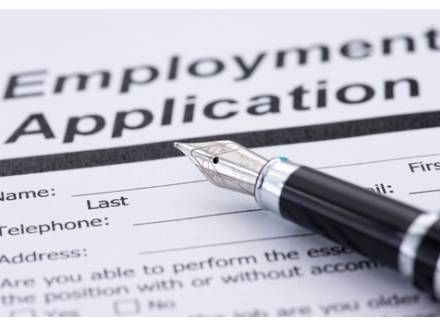 If you have a good job now or are on a promising career trajectory, it makes sense to prioritize your future career prospects. Finding and keeping gainful employment is essential to staying out of debt and recovering your financial health after bankruptcy. It makes sense to take the time to understand how bankruptcy could or could not affect your current and future employment. For most people, filing for bankruptcy has no real impact on their job prospects. However, if you work in certain professional industries, you may encounter employers less willing to hire applicants who have been through bankruptcy. An experienced Kerrville, TX bankruptcy attorney can help you understand how a bankruptcy might affect your career plans.
If you have a good job now or are on a promising career trajectory, it makes sense to prioritize your future career prospects. Finding and keeping gainful employment is essential to staying out of debt and recovering your financial health after bankruptcy. It makes sense to take the time to understand how bankruptcy could or could not affect your current and future employment. For most people, filing for bankruptcy has no real impact on their job prospects. However, if you work in certain professional industries, you may encounter employers less willing to hire applicants who have been through bankruptcy. An experienced Kerrville, TX bankruptcy attorney can help you understand how a bankruptcy might affect your career plans.
Can I Get Fired for Filing for Bankruptcy?
Your current employer cannot legally fire you just for filing for bankruptcy. Firing an employee for needing debt relief would be considered a form of workplace discrimination. Even the best and most responsible employee could need to file for bankruptcy after experiencing setbacks that are beyond his or her control, like extraordinary medical bills or a house fire.






